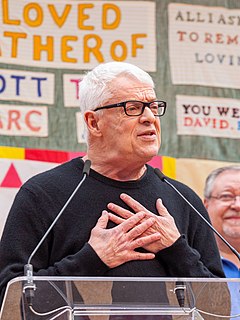A Quote by Joyce Carol Oates
Critics sometimes appear to be addressing themselves to works other than those I remember writing.
Related Quotes
Writing is a futile attempt to preserve what disappears moment by moment. All that remains of my mother is what I remember and what I have written for and about her. Eventually that is all that will remain of [my husband] and me. Writing sometimes feels frivolous and sometimes sacred, but memory is one of my strongest muses. I serve her with my words. So long as people read, those we love survive however evanescently. As do we writers, saying with our life's work, Remember. Remember us. Remember me.
For some reason at Sundance, more than other festivals that I'm aware of, you find filmmakers rushing to screen works that sometimes aren't completed. In my seven years of programming at Toronto, I'm not aware of any documentaries that went back for serious editing after their premiere - other than those presented as works-in-progress. But at Sundance every year there seems to be a few films that push the deadline so hard that they get taken back to the edit room afterwards.
I use biography, I use literary connections (as with Platen - this seems to me extremely helpful for appreciating the nuances of Mann's and Aschenbach's sexuality), I use philosophical sources (but not in the way many Mann critics do, where the philosophical theses and concepts seem to be counters to be pushed around rather than ideas to be probed), and I use juxtapositions with other literary works (including Mann's other fiction) and with works of music.
Unlike prose writing, the strange process of writing with pictures encourages associations and recollections to accumulate literally in front of your eyes; people, places, and events appear out of nowhere. Doors open into rooms remembered from childhood, faces form into dead relatives, and distant loves appear, almost magically, on the page- all deceptively manageable, visceral, the combinations sometimes even revelatory.
People like ourselves may see nothing wondrous in writing, but our anthropologists know how strange and magical it appears to a purely oral people - a conversation with no one and yet with everyone. What could be stranger than the silence one encounters when addressing a question to a text? What could be more metaphysically puzzling than addressing an unseen audience, as every writer of books must do? And correcting oneself because one knows that an unknown reader will disapprove or misunderstand?





































